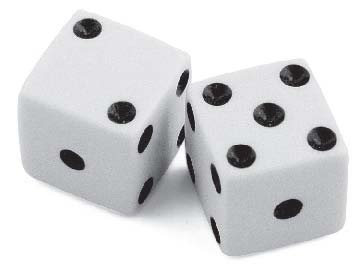Lesson 1: Clinical Disorders – Part F
PART F
Is Pathological Gambling Similar to Chemical Dependency?
 Yes and no. Similarities between pathological gambling and chemical dependency include an inability to stop/control the addiction, denial, severe depression, and mood swings. Pathological gambling and chemical dependency are both progressive diseases with similar phases. These include chasing the first win/high, experiencing blackouts, and using the object of addiction to escape pain. Both pathological gamblers and persons addicted to alcohol or drugs are preoccupied with their addictions, experience low self-esteem, use rituals, and seek immediate gratification.
Yes and no. Similarities between pathological gambling and chemical dependency include an inability to stop/control the addiction, denial, severe depression, and mood swings. Pathological gambling and chemical dependency are both progressive diseases with similar phases. These include chasing the first win/high, experiencing blackouts, and using the object of addiction to escape pain. Both pathological gamblers and persons addicted to alcohol or drugs are preoccupied with their addictions, experience low self-esteem, use rituals, and seek immediate gratification.
Unlike chemical addiction, pathological gambling is a hidden disease. Gamblers do not stumble, have needles in their arm, or smell of cards and dice. Pathological gamblers cannot overdose in the conventional sense, but they experience tremendous financial problems that require immediate attention. More resources are available to chemical dependency than gambling addiction, in part because most people do not perceive gambling as potentially addicting. It is very important that pathological gamblers receive crisis stabilization at the beginning of their treatment, because pathological gamblers have a much higher suicide rate than persons addicted to alcohol or drugs.